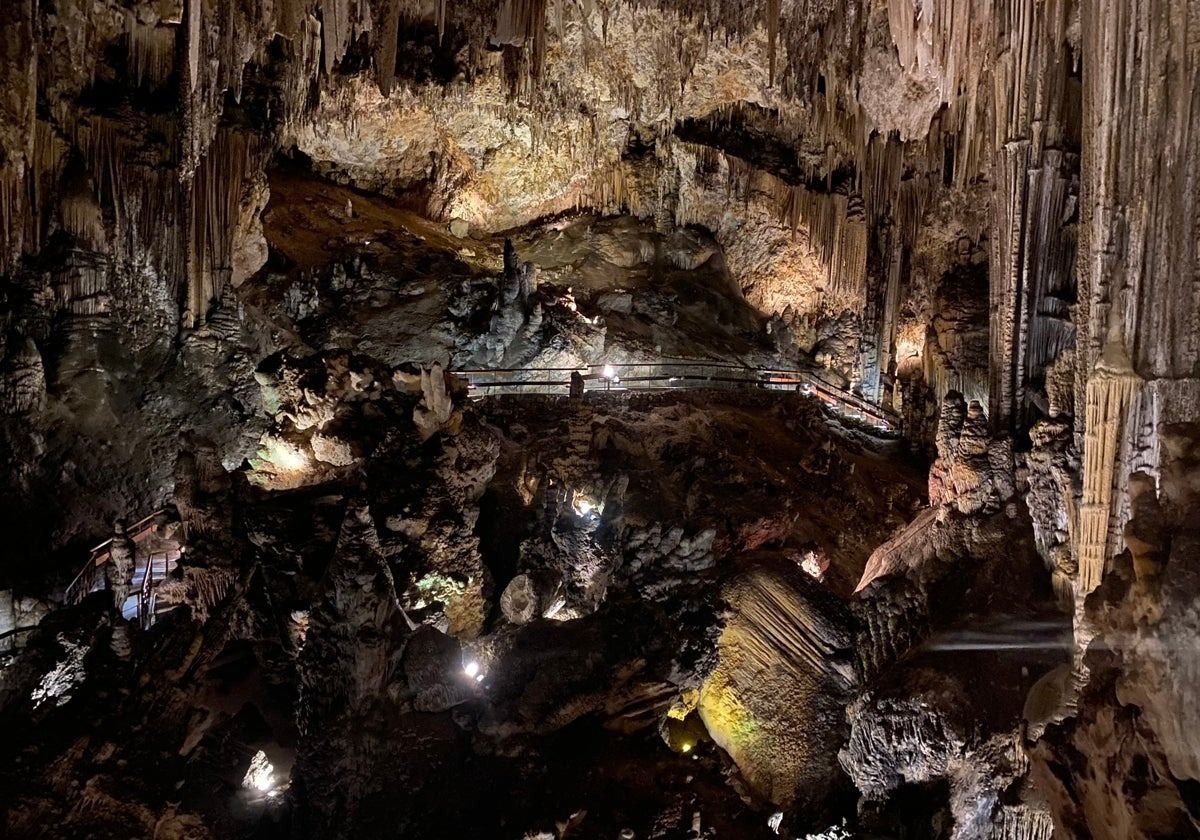

Sections
Highlight

Eugenio Cabezas
Nerja
Saturday, 29 March 2025, 08:31
The popular Nerja cave tourist attraction on the eastern Costa del Sol continues to be the focus of scientific debate in southern Europe. The cave's research institute (IICN), together with the Spanish national research council (CSIC) and the universities of Cadiz (UCA) and Alcalá (UAH), has started a new scientific debate through a specialised seminar for the in-depth study of the importance of the sea in prehistoric communities.
The aim of the academic initiative is to publicise research projects on prehistoric sites related to the sea, "evaluating the exploitation of the enormous resources provided by the sea as a great medium that facilitates the movement of people, products and ideas, and also as a space for the relationships established between coastal and inland areas," the Cueva de Nerja Foundation said in a statement.
The ‘Looking at the Sea: visions from prehistory’ seminar was held online, with 25 speakers from 13 different projects on the subject and more than 50 attendees.
The video conference format allowed scientists from Spain, Portugal and Italy to share their experiences and for students and other people interested in the subject to join in.
The researchers Luis-Efrén Fernández, Cristina Liñán and Yolanda del Rosal from the IICN hosted the meeting, which was attended by important scientific advisors including Juan F. Gibaja, M. Cubas and Gerard Remolíns from the CSIC and the UAH, and José Ramos and Eduardo Vijande, from the UCA.
Among the projects discussed were the prehistory of the Nerja cave; the Strait of Gibraltar as a bridge during prehistoric times; the Cantal caves in Rincón de la Victoria; the arrival of the first homo sapiens in Portugal and Neolithic navigation in the Marmotta settlement (Italy).
Other topics covered included Mediterranean and Neolithic navigation from Pisa (Italy), the Campo de Hockey necropolis in Cadiz, the Cueva del Toro in Benalmádena; the Mesolithic-Neolithic in Portugal; the Mesolithic-Neolithic in the Cantabrian Sea; the Bronze Age in the River Guadalquivir and studies on the Mediterranean diet during Prehistory.
The event "aroused great scientific and academic interest," said the foundation. They added that they recognised the advantages of the online format, as it allows a wider audience, a lower organisational cost and a great scientific projection.
Publicidad
Publicidad
Publicidad
Publicidad
Esta funcionalidad es exclusiva para registrados.
Reporta un error en esta noticia

Debido a un error no hemos podido dar de alta tu suscripción.
Por favor, ponte en contacto con Atención al Cliente.

¡Bienvenido a SURINENGLISH!

Tu suscripción con Google se ha realizado correctamente, pero ya tenías otra suscripción activa en SURINENGLISH.
Déjanos tus datos y nos pondremos en contacto contigo para analizar tu caso

¡Tu suscripción con Google se ha realizado correctamente!
La compra se ha asociado al siguiente email
Comentar es una ventaja exclusiva para registrados
¿Ya eres registrado?
Inicia sesiónNecesitas ser suscriptor para poder votar.